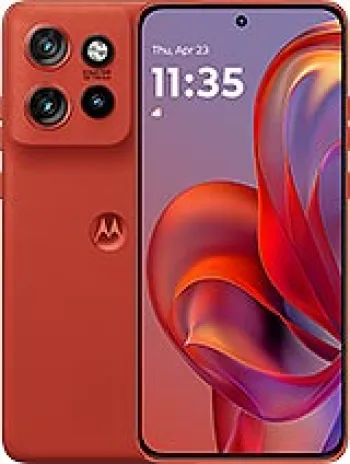
Introduction to Motorola C289
The Motorola C289 is a classic feature phone that was announced in the first quarter of 2003. At the time of its release, it was positioned as a basic, reliable communication device intended for users who required essential telephony services without the complexities and additional features of more advanced smartphones. The C289 stands as a testament to the era where mobile technology was primarily about voice communication and basic messaging services.
Design and Build
The Motorola C289 features a compact and minimalistic design. With dimensions of 105 x 41 x 18 mm and a lightweight build of 89 grams, it was designed for portability and ease of use. The phone's durable construction made it a suitable choice for users seeking a robust device for daily use. Its design language encapsulates the era’s typical mobile aesthetics with a monochrome graphic display that measures 64 x 96 pixels, presented in a 3:2 ratio. The device is adorned in classic Black and White colors, appealing to users preferring understated elegance.
Display
The Motorola C289's display is monochrome, aligning with its sole focus on being a functional and straightforward communication device. While it lacks the vividness and detail of modern color displays, its simplicity ensures visibility under various lighting conditions, which is particularly beneficial for outdoor usage. The resolution of 64 x 96 pixels might appear modest today, but was perfectly adequate for the text-based communication and simple graphical content it was designed to handle.
Performance and Features
The C289 operates on a feature phone operating system, devoid of the sophisticated computing power found in contemporary smartphones. It offers no support for memory expansion via card slots; however, it includes a phonebook capable of storing up to 250 contacts and maintains essential call records, offering users basic telephony functionalities. Without advancements such as GPRS or EDGE, the device remains focused on foundational communication capabilities, including SMS messaging and voice calls.
Network and Connectivity
As a GSM device, the Motorola C289 supports 2G bands operating on GSM 900 / 1800 frequencies. In an age preceding widespread mobile internet access, it does not support GPRS or EDGE, reflecting its primary focus on voice communication. Its lack of WLAN, Bluetooth, and position tracking capabilities highlights its intended use case: reliable and straightforward telephony without the intricacies associated with modern connectivity options.
Battery Life
Equipped with a removable Li-Ion 540 mAh battery, the Motorola C289 provides a commendable standby time of up to 120 hours and a talk time of up to 3 hours. This battery performance is indicative of the low power demands of its hardware, ensuring users could count on their phones throughout the day without frequent recharging. During its time, such battery endurance was a valuable feature, contributing to its popularity among users who prioritized longevity and reliability.
Sound and Alerts
Despite the absence of a loudspeaker, the device supports vibration and downloadable monophonic ringtones for alerts, ensuring users are notified of incoming calls and messages. The exclusion of a 3.5mm jack aligns with its era's focus, which did not emphasize multimedia consumption as much as present-day devices.
Miscellaneous Features
The Motorola C289 includes a WAP browser, allowing for basic internet browsing, a feature that, although limited by today’s standards, offered a glimpse into the emerging digital connectivity landscape. Additionally, the phone includes three simple games, providing users with basic entertainment options.
Conclusion
The Motorola C289 encapsulates the essence of early 2000s mobile communication—a device designed for voice calls and SMS within a robust and straightforward package. Its lack of modern-day smartphone features serves as a reminder of an era when mobile phones were primarily about connecting people through voice and text. Despite its discontinuation, the C289 is remembered as a reliable companion for its users, meeting basic communication needs with endurance and efficiency.
Key Features of Motorola C289
- Compact and lightweight design (105 x 41 x 18 mm, 79 cc, 89 g)
- GSM 900/1800 Network
- Monochrome graphic display with a resolution of 64 x 96 pixels
- Phonebook capacity of 250 contacts
- Support for SMS messaging
- WAP browser for basic internet browsing
- Includes 3 games
- Removable Li-Ion 540 mAh battery with up to 120 hours standby time and up to 3 hours talk time
- Available in Black and White colors
- Mini-SIM support
Disadvantages of Motorola C289
- No GPRS or EDGE support for data connectivity.
- Monochrome graphic display with low resolution.
- No expandable memory card slot available.
- No camera feature.
- No loudspeaker and standard 3.5mm audio jack.
- Lacks Bluetooth and WLAN connectivity options.
- No positioning system or radio.
- Limited messaging capability with only SMS support.
- No support for Java applications.
- Short battery life with up to 3 hours talk time and up to 120 hours standby.
- Discontinued status; not available in the market.

View Also
More Phones
All Rights Reserved +14266 Phones © Mobilawy 2025

























